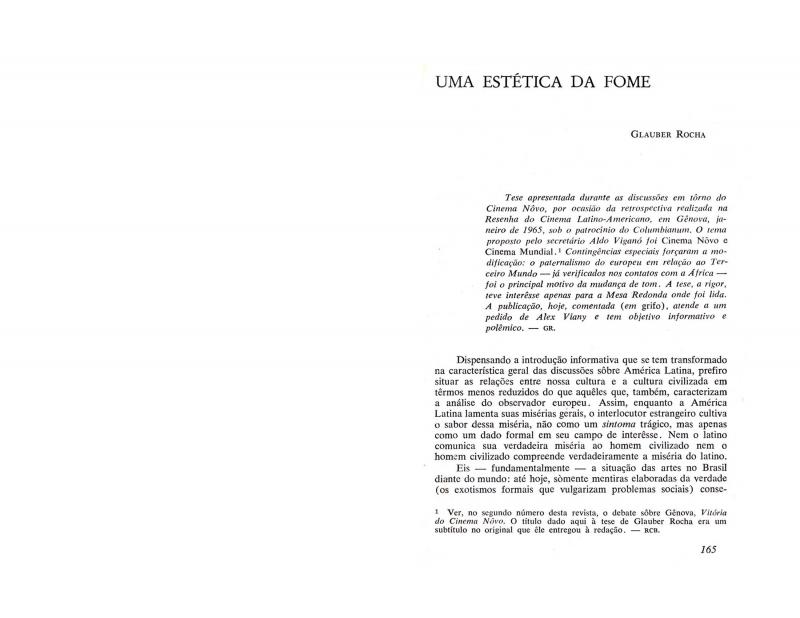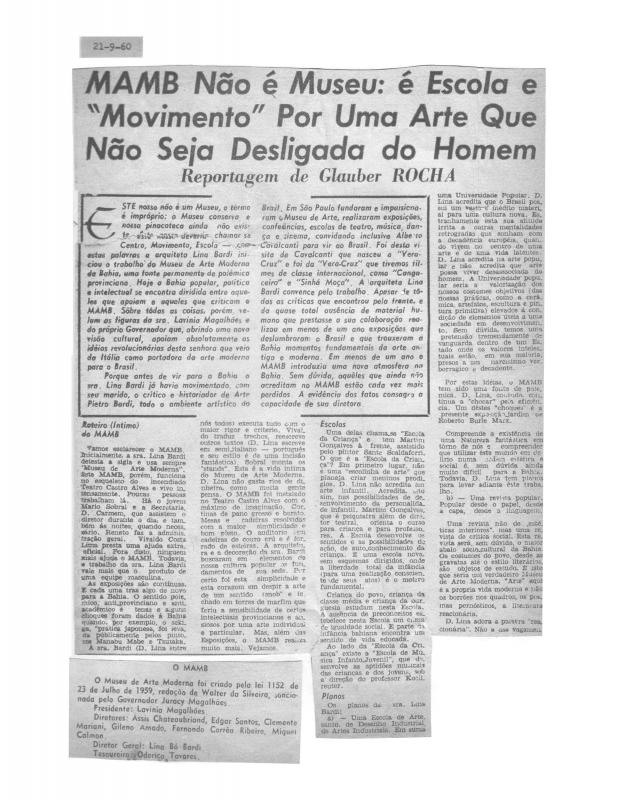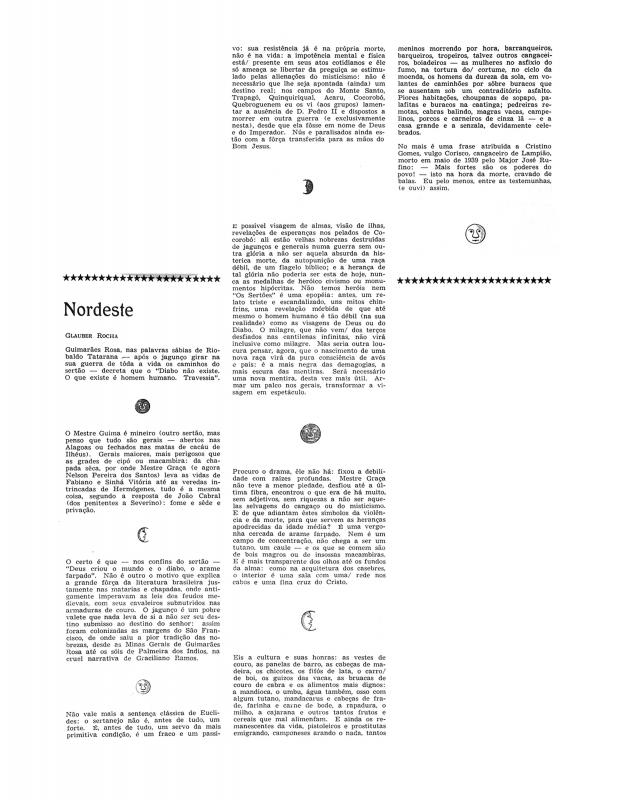Ismael Xavier refers to Glauber Rocha’s essay “Uma Estética da Fome” [An Aesthetic of Hunger] in which he sees a connection to Frantz Fanon’s theory concerning an intellectual response to the consequences of colonialism. In so doing, Xavier attempts to highlight the revolutionary nature of the work produced by the filmmaker from Bahia that explored the aspirations, limitations, and contradictions of the cultural world of the 1960s. In Xavier’s opinion Glauber Rocha eschews the kind of paternalistic approach that would effectively paper over reality, and therefore embodies an extremely radical sort of intellectual freedom, one that rejects a simplified reading of popular culture. That is, Rocha dismisses the idea of “manifest destiny” by revealing the common thread that unites both the alienated members of society and the educated middle class with the intelligentsia. The internal struggle, on the one hand, and the rejection of traditional formalism, on the other, are the product of the artist’s drive to improve and express himself. The result, reflected in the structure of Rocha’s work, conveys a lack of coherence and balance that contradict traditional canons of filmmaking and contribute to the audience’s discomfort. The revolutionary violence depicted in his work—to varying degrees in films such as Barravento, Deus e o Diabo na Terra do Sol, and Terra em Transe—underscores “the leading role that Glauber played in the 1960s.” Rocha’s role is reminiscent of the yearning for renewal that was expressed by modernism at the Semana de Arte in 1922 that, decades later, laid the groundwork for the Tropicalismo movement that emerged during his own time. Xavier’s review suggests “a suspension of hierarchies that reveal certain blind spots in the present that were, however, noted by the earlier rationalization.”



